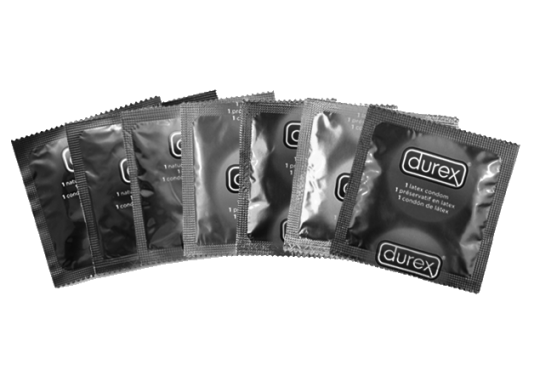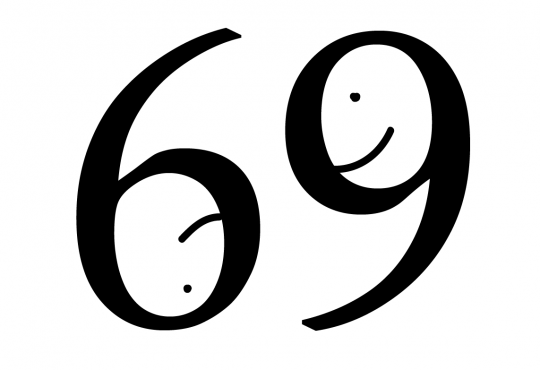It’s really bothersome that “virginity” is still such a profound measure of worth for so many people, regardless of whether virginity is “pure” or “uncool.” The whole notion of “virginity” is silly anyway. Why is “having your cherry popped” (more on how that’s a complete fallacy later) with penis-in-vagina sex so much more significant than any other sexual act?
Virginity is, in fact, a concept that arose several thousand years ago in societies where women were seen as property to be bought or traded. Forbidding women from engaging penis-in-vagina (PIV) sex was important to potential husbands because then the paternity of any child that woman bore would be undeniable. It was also important to fathers because a virginal daughter would elicit a higher bride-price (props to Laci Green and her video “Let’s Lose ‘Virginity’” for the historical info).
Paternity tests and birth control do today what abstinence did then, and, in Western cultures, at least, fathers are (hopefully) not selling their daughters for cattle and farm equipment. And yet, the myth of “sexual purity” is still a pervasive source of shame and judgment.
Here are a few of my gripes with the notion of “losing your virginity”:
First, the idea that you are losing anything by engaging in what should be a sexy, exciting, pleasurable, and sometimes emotional and loving act does a disservice to the awesomeness that is sex. A lot of people are changing their language to get rid of this notion of “loss” and are instead choosing to use the term “making their sexual debut.”
Thinking of virginity as a “loss” of something is also closely tied to the idea that you can break your hymen, which really just stems from a misunderstanding about human anatomy. The hymen is a stretchy membrane that only covers part of the vagina, and can in fact stretch out of the way during penetrative intercourse.
The pain, bleeding, and “breaking” is the result of a) not enough lube, natural or otherwise; b) pushing too fast; and c) feeling scared or tense, which can make penetrative entry more difficult. Fingering in the weeks prior to the first time can also help to stretch the hymen before making way for something bigger. And, as always, love your lube. Lube can help ease the entry – sex should never have to hurt.
Second, assigning penetrative sex to “virginity” leaves out the wealth of other sexy experiences one might have. If the only “real” sex is PIV, what does that say about two female-bodied or two male-bodied people who want to get frisky? Is someone who has had oral sex with scores of people more “pure” than someone who has had penetrative sex with only a handful of people?
Third, it is tragic that the notion of “virginity” ranks penetrative sex (regardless of how it felt or how that person feels about it) above the joy of bringing yourself or another person to orgasm. As Emily Jensen in her article “Nobody ‘Took’ My Virginity” puts it, “No one ‘took’ my virginity and made me a sexual person… No one got to know my body before I did it first. There was no one who stepped in and showed me how…I did it first. I get the credit.”
The bottom line is that, by placing a lot of importance on what is going where instead of how the people involved feel about it and how they feel about themselves, people have their priorities way out of whack.
Hanne Blank, author of Virgin: The Untouched History, wrote an article titled “The Process-Oriented Virgin” about how many of the young women she talked to during her book tour were defining for themselves what “counted” and what didn’t. For many of them, the sex that “counted” was when they first had an orgasm, when they felt emotionally present, when they knew what they were doing, when they initiated the sex themselves, or when it “felt right.”
Initially wary of these ambiguous definitions, Blank realized that when young women define for themselves what “real” sex is, they get more control over their bodies and more influence in the definition of their sexuality. They also don’t have to accept as “real” sex they didn’t enjoy. Changing the definition of sex might also allow people who have been sexually assaulted to heal, and would give those people back a sense of control over their sexuality.
From an emotional and sex-positive standpoint, all consensual sexual acts are “real” sex, just different kinds of sex. That includes masturbation, or “solo-sex.” Loving yourself is just as significant, if not more significant, than loving someone else.
Being a “virgin” is really no big deal. Nobody deserves to be defined by what is done to them; it’s what they do with those experiences that shows how valuable they really are.






